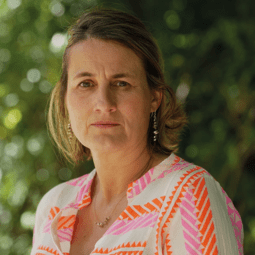
Perdita Barran
Director of the Michael Barber Centre for Collaborative Mass Spectrometry, The University of Manchester, UK
False

Director of the Michael Barber Centre for Collaborative Mass Spectrometry, The University of Manchester, UK
Main research aims? To use mass spectrometry to solve problems of societal importance that cannot be readily understood with other methods and to train people to “think like ions” so that they can optimize the mass spectrometry experiment, or even make a new instrument. To measure the conformational landscapes adopted by proteins with disordered regions, and to diagnose Parkinson’s disease from swabbed sebum with quantitative MS.
An exciting frontier in human health? The opportunity to perform high-throughput multiomic discovery measurements in several labs to find robust biomarkers that can be translated to clinical mass spectrometry assays to benefit patients.
How to transform disease diagnosis and treatment… We need to work fast – we need to keep up with the predictive power offered by machine learning and we need to test their hypotheses. When we have robust markers there will be two types of assay, to develop: point-of-use and point-of-care. Both are based on analytical science. We also need to keep both accessible. MRM assays for biomarkers in the clinic remain the most affordable way to provide results, especially for non-infectious disease.
How would you spend a $1 billion research grant? To determine the role of lipid protein interactions in aging related diseases and to use the information to improve people’s quality of life for as long as possible.
Biggest challenge facing the field? The lack of testing of AI methods.
Receive the latest pathologist news, personalities, education, and career development – weekly to your inbox.

False
False
False